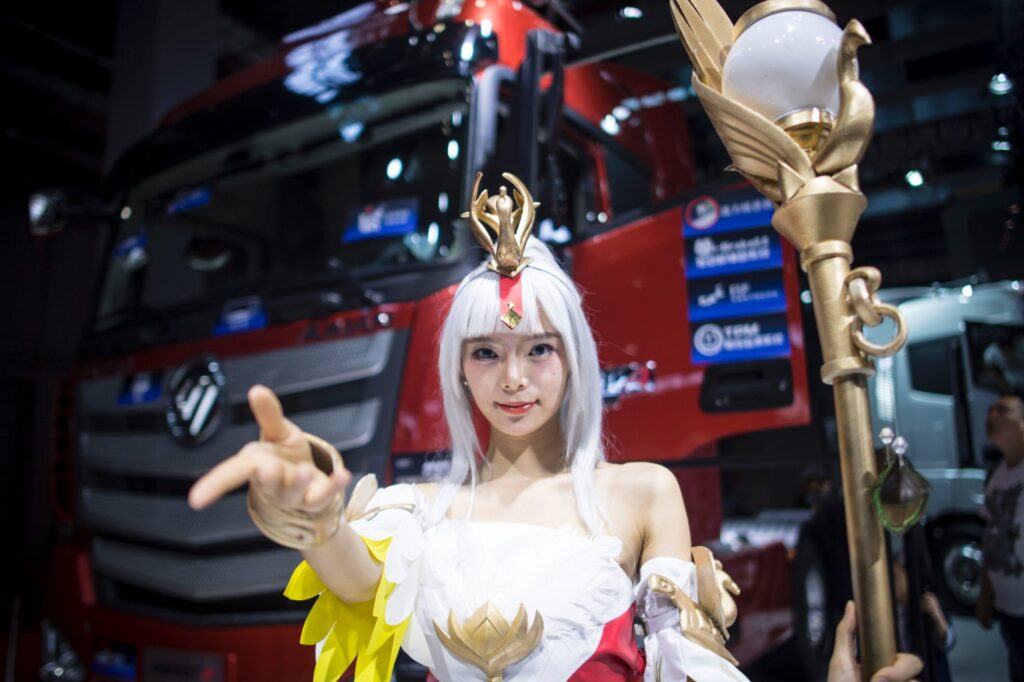TuSimple, an American self-driving truck startup, told federal officials it would stop sharing technology with China — then did it anyway days later, according to The Wall Street Journal.
The San Diego-based startup, founded by Chinese entrepreneurs, told the Committee on Foreign Investment in the U.S. (CFIUS) in 2022 that it would wall off its American operations from its Chinese affiliates. But within a week, TuSimple engineers began sending detailed U.S. testing data, design plans and hardware schematics with Chinese partners tied to the country’s state-owned auto sector, the Journal reported. (RELATED: EXCLUSIVE: FCC Commissioner Warns Chinese Tech Still ‘Phoning Home’ To Beijing)
“[Foton] wants a lot of details,” one TuSimple engineer wrote to colleagues in a chat thread obtained by the outlet, referring to the Chinese truck manufacturer. The documents sent over included brake specs, steering controls, chip requirements and reportedly even files developed with American manufacturing partner Navistar — all translated from English to Mandarin to ease the transfer.
A woman in a cosplay outfit poses in front of a vehicle by Chinese carmaker Beiqi Foton Motor during the public day for the 17th Shanghai International Automobile Industry Exhibition in Shanghai on April 24, 2017. (JOHANNES EISELE/AFP via Getty Images)
The revelations, laid out in documents obtained by the Journal, triggered multiple federal investigations. The FBI, Securities and Exchange Commission (SEC) and Commerce Department launched probes into TuSimple’s relationship with a China-based spinoff called Hydron, which was quietly absorbing TuSimple’s technology and talent while promising Beijing a fleet of autonomous hydrogen-powered trucks, the outlet reported.
Federal monitors initially believed TuSimple was complying with its 2022 agreement to isolate its U.S. operations from China, according to the outlet. CFIUS examiners even visited the company’s Arizona offices and found no smoking gun, the Journal separately reported — until mounting evidence forced them to refer the case to the Justice Department. Commerce Department officials also reportedly intercepted a shipment of Nvidia AI chips en route to China in connection with the company’s operations. (RELATED: Chinese EV Makers Post Record Sales As US Industry Continues To Flounder Despite Billions In Biden Subsidies)
TuSimple’s rise had been meteoric. The company went public in 2021 with a $1.35 billion IPO, according to Bloomberg, completed the longest human-free commercial truck run on record, and seemed poised to lead the U.S. in driverless freight. But behind the scenes, TuSimple’s leadership — reportedly tied closely to Chinese media magnate Charles Chao — was preparing a quiet pivot.
By 2023, the company had shut down its U.S. operations, laid off hundreds, auctioned off its trucks and rerouted its assets to China. TuSimple delisted from the Nasdaq in early 2024 and now exists mostly as a shell, with many engineers — and, the Journal alleges, some intellectual property — moved to spinoffs like Hydron and Bot Auto, a Texas-based startup funded by Chinese capital.
Cofounder Xiaodi Hou, who now leads Bot Auto, denied that any protected U.S. data “was ever shared with anyone” in a statement to the Journal. Still, engineers in Beijing reportedly continue to access and modify code originally developed in TuSimple’s San Diego offices.

LAS VEGAS, NEVADA – JANUARY 03: Workers set up the TuSimple booth for CES 2022 at Las Vegas Convention Center January 3, 2022 in Las Vegas, Nevada. (Photo by Alex Wong/Getty Images)
TuSimple’s collapse has since become a case study in the challenges of preventing strategic technology transfers to China. The Trump administration, responding in part to the company’s alleged actions, said monitoring pacts are inadequate and pushed for more outright blocks on sensitive technology-sharing with China. The Commerce Department has already proposed rules banning Chinese-made, internet-connected vehicles.
Hydron, TuSimple’s offshoot in China, now works directly with Foton — part of the state-owned Beijing Automotive Group Company (BAIC) — to develop a line of hydrogen-powered autonomous rigs, according to the Journal.
The DCNF reached out to TuSimple, Foton, Bot Auto, Hydron, the Commerce Department, SEC, FBI and CFIUS for comment, none of whom replied by the time of publication.
All content created by the Daily Caller News Foundation, an independent and nonpartisan newswire service, is available without charge to any legitimate news publisher that can provide a large audience. All republished articles must include our logo, our reporter’s byline and their DCNF affiliation. For any questions about our guidelines or partnering with us, please contact licensing@dailycallernewsfoundation.org.


